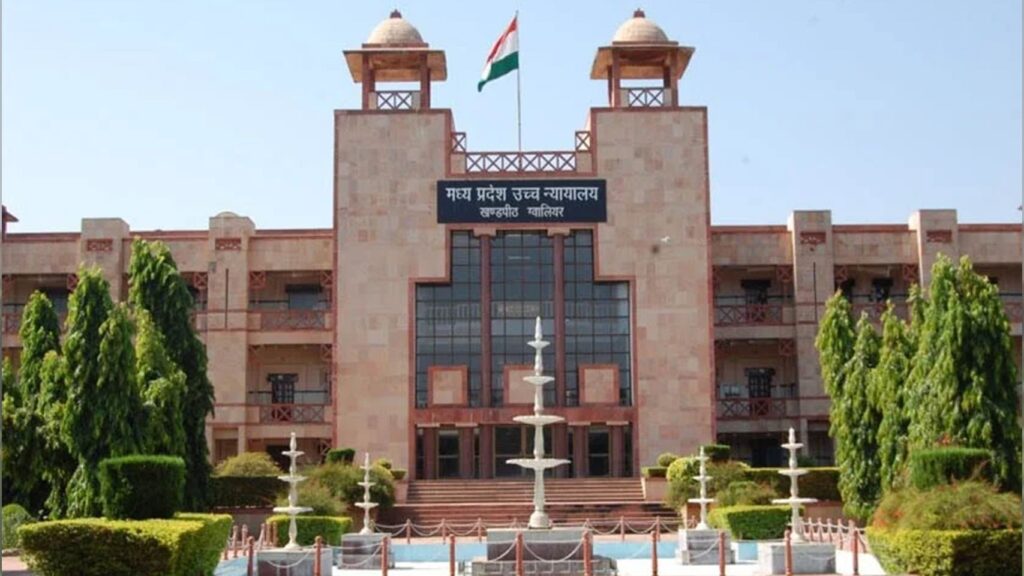The Madhya Pradesh High Court stated that if the disciplinary authority does not provide a reason for why the dismissal is justified, it shows that the authority did not consider the charges and their seriousness.

The Madhya Pradesh High Court ordered that an employee be reinstated, noting that the disciplinary authority did not provide reasons for the dismissal, indicating a lack of proper examination of the charges. The Court overturned the dismissal of the petitioner, who worked for the Bhopal Development Authority (BDA).
The Court mandated the employee’s reinstatement along with all salary and arrears, highlighting a “violation of principles of natural justice” and the “non-application of mind” , Justice Sanjay Dwivedi noted that the order in question does not show that the Disciplinary Authority thought critically about the case or explained why the petitioner’s response to the charges was inadequate. The charges were deemed proven based solely on the Enquiry Officer’s report. This indicates that the Disciplinary Authority’s decision to impose a severe penalty on the petitioner lacks justification and fails to consider the seriousness of the charges. In my view, the opportunity provided to the petitioner appears to be merely a formality.a failure to properly consider the case by the Disciplinary Authority, as the dismissal relied solely on the Enquiry Officer’s report without an independent review.
The petitioner was represented by Senior Advocate K.C. Ghildiyal, and Advocate Kapil Duggal represented the respondents. The petition filed under Article 226 of the Constitution contested the dismissal of the petitioner, who had been serving as a Revenue Officer. It argued that his suspension and dismissal were clearly unlawful and should be overturned. The Court observed that the petitioner was accused of working with a company, which resulted in his suspension, but noted that the charge sheet was created without any witnesses being questioned by the respondents and that no proper investigation took place.
The Bench pointed out that the Disciplinary Authority failed to think critically or explain why the charges and the Enquiry Officer’s suggestion for dismissal justified a “major penalty,” calling the enquiry “merely a formality.” The Court emphasized that “principles of natural justice” require the accused to have a chance to respond to the Enquiry Officer’s findings before the Disciplinary Authority makes a decision. Regarding proportionality, the Court acknowledged that “the ability to challenge disciplinary actions in a petition under Article 226 of the Constitution of India is quite limited,” but noted that the “punishment given to the petitioner did not follow any legal procedures and completely violated principles of natural justice.”
The Court overturned the dismissal orders and instructed the BDA to “reinstated the petitioner with all back pay and related benefits.” “Based on the legal principles mentioned and the inquiry report, it is clear that the punishment given to the petitioner did not follow the proper legal procedures and violated natural justice. There is a lack of evidence, as the decision relies solely on the Inquiry Officer’s report, who assessed the charges and the delinquent’s response, concluding that a severe punishment was necessary. The Inquiry Officer did not adhere to the required procedures for conducting the inquiry,” the Bench noted.
The Court stated that the way the respondents dismissed the petitioner was illegal and went against natural justice. The order from the Disciplinary Authority lacked proper consideration and was unreasonable because it relied solely on the Enquiry Officer’s report, making it invalid under the law. Both the Disciplinary Authority’s and the Appellate Authority’s decisions should be overturned. As a result, the High Court approved the petition.
Cause Title: Vijay Singh Yadav v. Bhopal Development Authority & Anr.
Appearance:
Petitioner: Senior Advocate K.C. Ghildiyal; Advocate K.N.Fakhruddin
Respondents: Advocate Kapil Duggal









